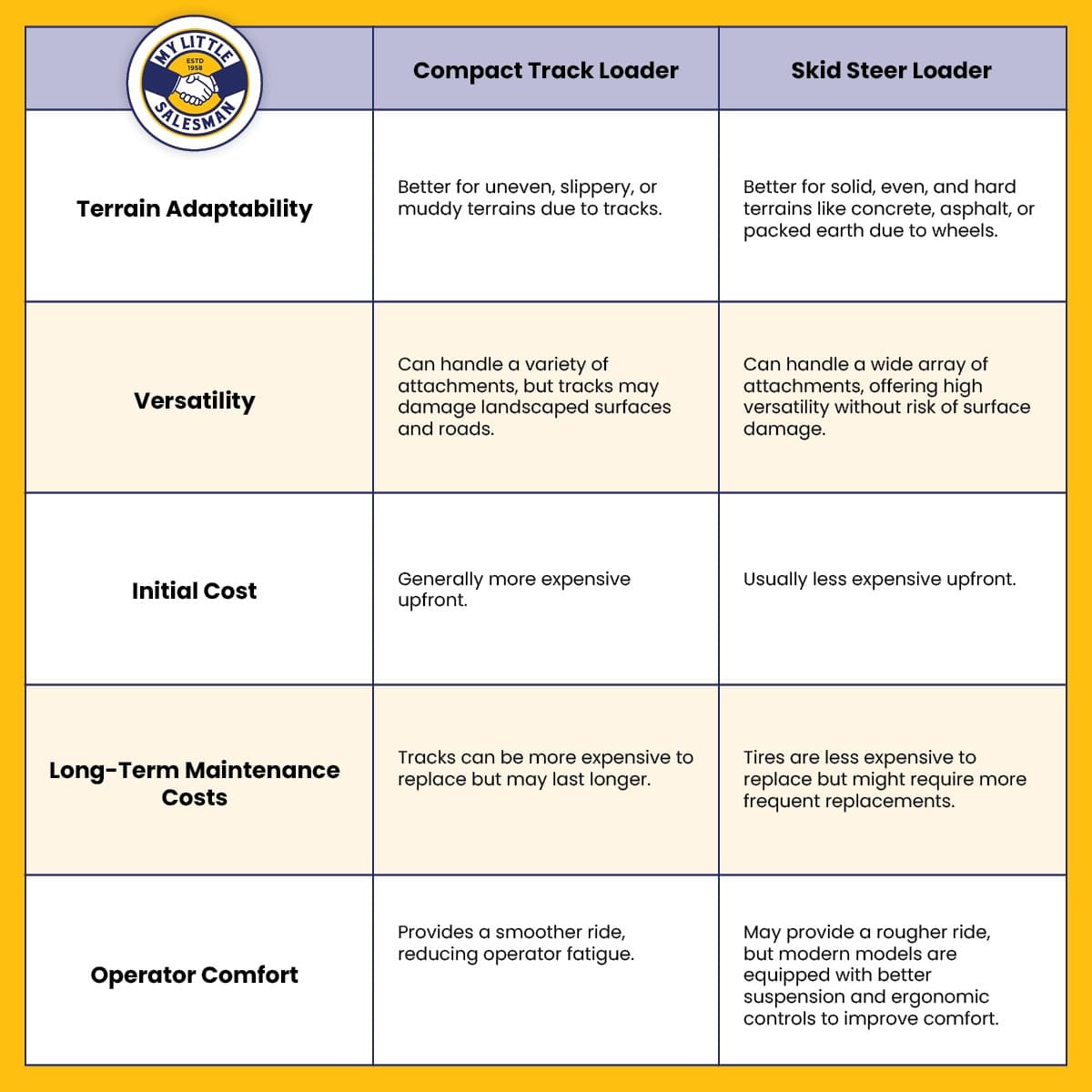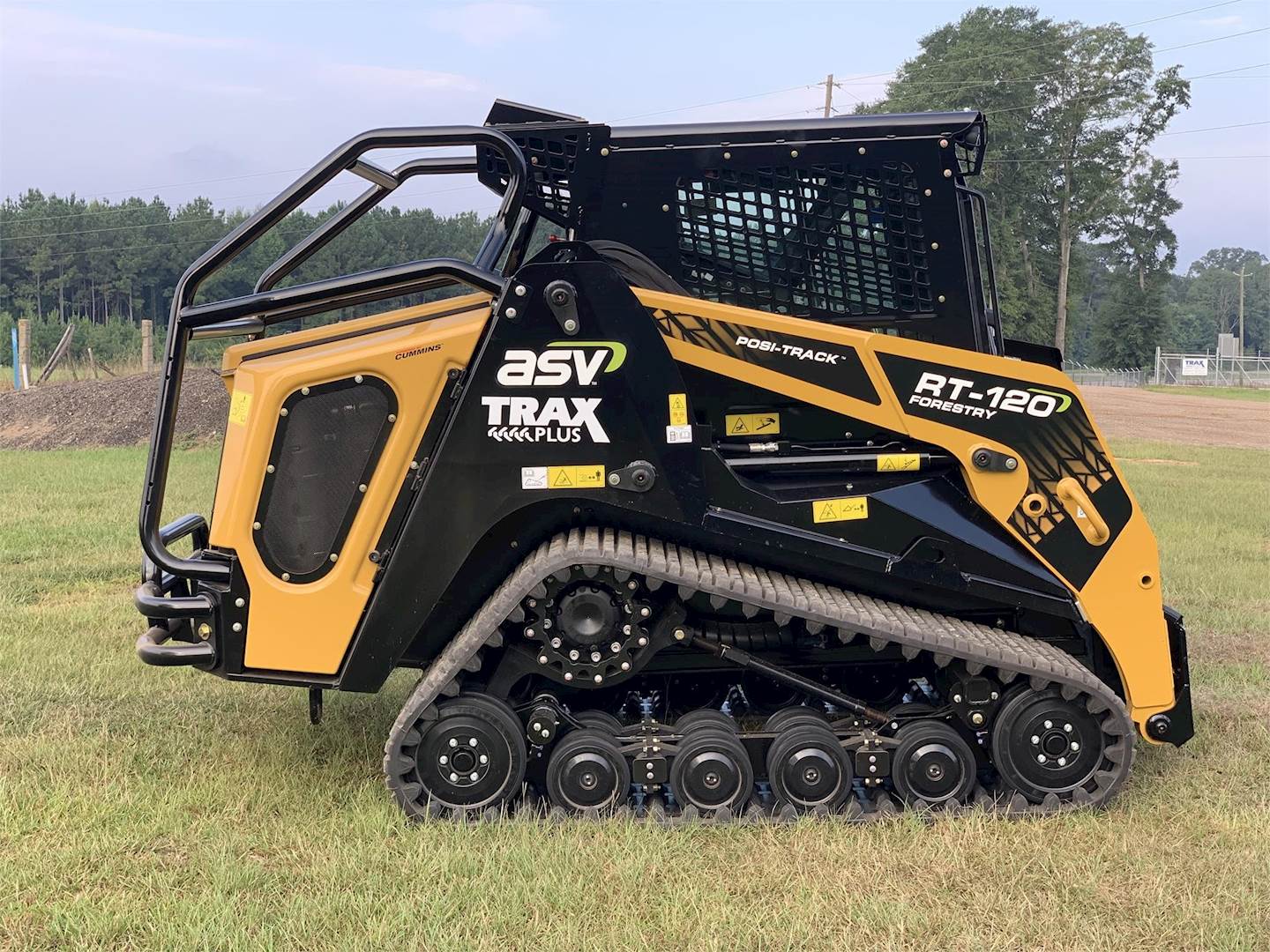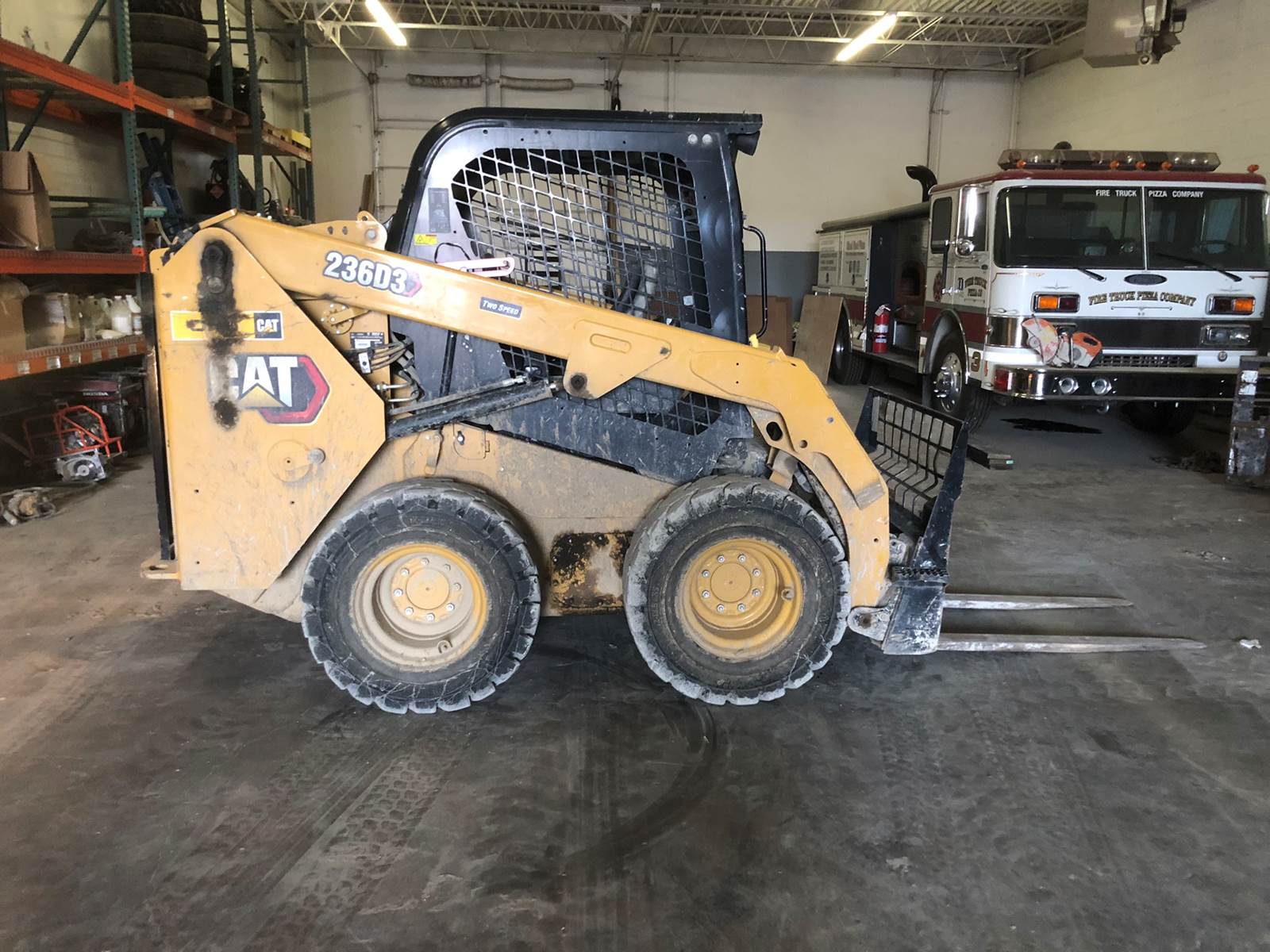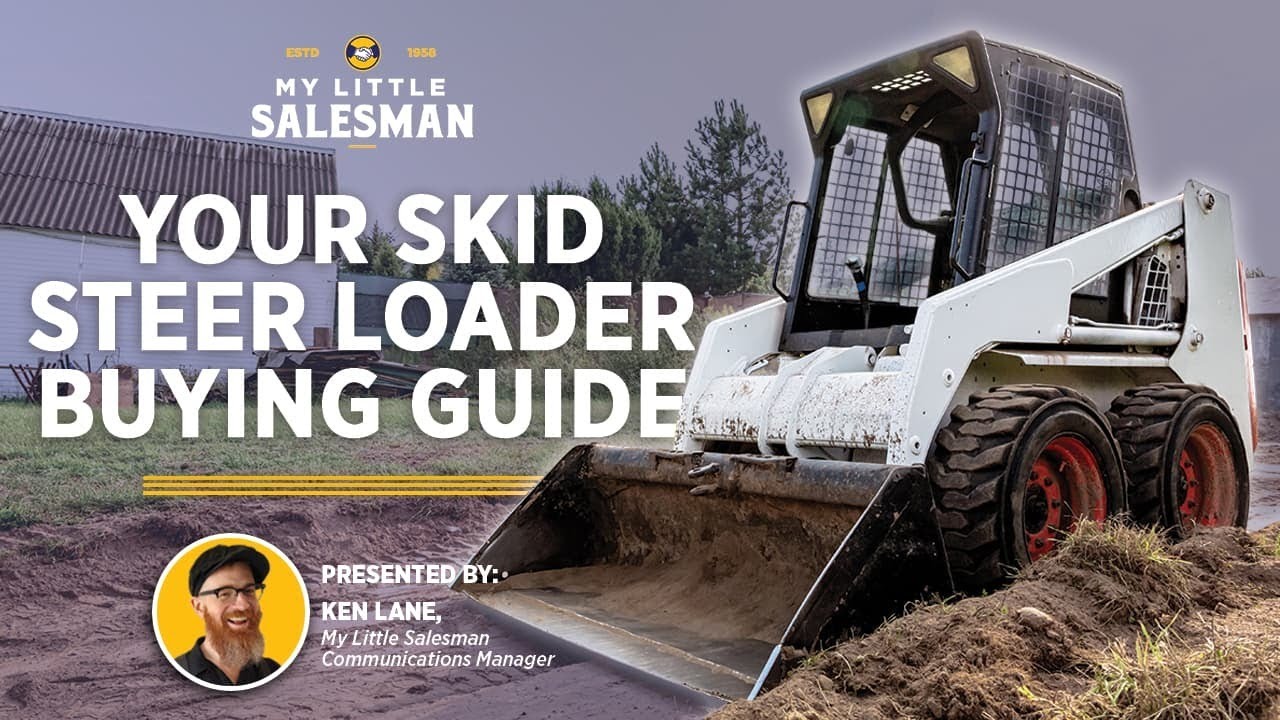There can only be one...right?
Scratching your head trying to decide between a compact loader and a skid steer? You're in the right place. Both machines have their perks, but which one is the right fit for you? Let's buckle up and delve into the nitty-gritty of each of these machines.
Pssst….
If you’re strapped for time, we’ve made this handy “TL;DR” chart to help you decide whether a skid steer loader or a compact track loader is better suited to your needs. Each of these sections is described in more detail in the rest of this guide.

Still with us? Great! Let’s help you make a decision.
Before we get ahead of ourselves, it's essential to understand what we're dealing with.
 A compact track loader.
A compact track loader.
Compact loaders, also known as compact track loaders, are among the smaller heavy equipment machines equipped with tracks instead of wheels. They're fantastic at navigating uneven or slippery terrains—such as marshy ground or slopes.
 A skid steer loader outfitted with fork attachments.
A skid steer loader outfitted with fork attachments. Skid steer loaders, on the other hand, are similar heavy equipment vehicles, only utilizing tires instead of tracks. They’re called “skid steers” because they steer by accelerating one side faster than the other—causing a slight “skid” into the intended direction. This zero-turn design combined with the rubber tires makes them nimble in tight spots, such as cramped construction sites.
For a detailed look at skid steer loaders, we actually made in-depth skid steer buying guide and video episode exploring what to look for in a skid steer for sale.

Both machines are Swiss Army knives in their own right, but if it's pure versatility you're after, the skid steer loader may be your champion.
Skid steers can be fitted with a staggering array of attachments. From buckets and backhoes to augers and dozer blades, there's little a skid steer can't be outfitted to do.
That’s not to say compact track loaders aren’t versatile, as they too can handle a variety of attachments. One of the only reasons why they may fall short in terms of versatility in comparison is due to their aggressive tracks—which, while great for muddier and loose terrain, make them slower and more likely to damage manmade terrain or landscaped grounds.
That being said, outfitting compact track loaders with rubber tracks significantly decreases the amount of carnage applied to the terrain—including even concrete and asphalt. They are, though, subject to wear like any other rubber components.
Speaking of which…
Terrain may actually be your main variable to consider when deciding between the two. And for this consideration, compact track loaders win the award for most capable on trickier terrain.
Compact track loaders are built to handle tough terrain. Thanks to their tracks, they distribute weight more evenly, reducing ground disturbance and increasing flotation. In fact, some operators report being able to drive their compact track loaders over terrain that they’d sink knee-deep into or deeper if they walked over it on foot!
Also, due to increased traction, compact track loaders may fare better on steep inclines or loose-terrain grades than their skid steer counterparts.
Skid Steers, on the other hand, with their wheeled design, are more suited for flat and hard surfaces. They can zip around quickly on concrete, asphalt, or packed earth without problems.
If you’re still trying to figure out which better suits your needs, just remember—wheels can be faster but tracks have more traction.
This is a tricky question.
Upfront, skid steers tend to be less expensive due to having fewer moving parts. But keep in mind that maintenance costs over time can tilt the scales. Tracks on compact loaders can be more expensive to replace than the tires on a skid steer but may last much longer. However, the increased versatility and traction of a compact loader might make it more cost-effective in the long run, depending on your use.
There are a lot of variables to consider!
Yep! Compact track loaders usually offer a smoother ride than skid steers thanks to their tracked design and slower speeds. This can make a big difference in operator fatigue, especially over long workdays.
However, this all depends on the terrain you’re traversing. Rough terrain may mean a rough ride on tracks versus tires.
This being said, skid steers can travel faster than compact track loaders. Many newer models have advanced features like better suspension and ergonomic controls to help offset a rougher ride.
In the end, whether you choose a compact track loader or a skid steer will come down to your specific needs. Consider the type of terrain you'll be working on, the tasks you'll be doing, and your budget. Both machines have their advantages, and neither is a wrong choice. Remember, the best investment is the one that works hardest for you.
Find Your Next Skid Steer or Compact Track Loader Today
We hope you found this guide helpful on your buying journey. To further assist you find the right model for your needs, you’re invited to look through thousands of listings from sellers near you with help from My Little Salesman. Using our handy search filters, you can search by equipment type, make, model, condition, proximity to you, and much more.
For your next skid steer or compact track loader for sale or any other construction equipment for sale today.